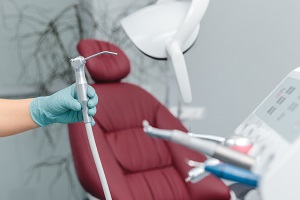The Opioid Prescription Training for Dental Healthcare Professionals is designed to educate dental healthcare professionals (DHCP) on the serious opioid epidemic in the United States and safety when using opioids.
Furthermore, in recent years, the opioid crisis has become a significant public health concern. Moreover, as dental healthcare professionals, you play a critical role in managing pain.
Additionally, our course is designed to equip you with the legal knowledge and skills needed to navigate the complexities of opioid prescription. Also, this comprehensive training program will provide you with the latest guidelines, practical strategies, and essential insights to help you make informed decisions.
What You’ll Learn
- Scope of the opioid addiction problem
- Strategies to prevent overdose deaths
- Information for prescribers
- Opioid stewardship
- Treating overdose deaths
Details
Course length: 1 hour and 30 minutes; CEU: 1.5.
Languages: American English
Key features: Audio narration, learning activity, and post-assessment
Get Certified
American Medical Compliance (AMC) is a leader in the industry for compliance, Billing and HR solutions. To become certified, please visit us at American Medical Compliance (AMC).
Reach out for other courses by visiting the AMC Course Library.
The Ongoing Challenge of Opioid Overdose
Opioid overdose continues to be a major legal and public health problem in the United States. With alarming rates of addiction and overdose deaths, the opioid crisis demands urgent attention and action from all healthcare sectors. Dentists are often on the front lines of pain management. Misuse and overprescription can lead to devastating consequences, not only for individual patients but also for communities at large. By staying informed and adhering to best practices, dental healthcare professionals can play a pivotal role in mitigating this crisis.
Learn How to Prevent and Manage Opioid Overdose
Opioid overdose is a pressing legal and public health issue that affects countless individuals and families. Dental healthcare providers, individuals at high risk, family members, and community members must equip themselves with the knowledge and skills to prevent opioid overdoses effectively. Dental healthcare professionals play a pivotal role in combating the opioid crisis. By participating in continuing education courses focused on opioid overdose prevention and management, providers can stay informed about the latest evidence-based practices. Persons at high risk of opioid overdose can benefit immensely from learning overdose prevention strategies. Understanding the signs of an overdose can save lives.
Opioid Overdose: A Major Public Health Problem
Opioid overdose has become one of the most critical legal and public health challenges of all time. The widespread misuse of prescription opioids, along with the surge in illicit opioid use, has led to a dramatic increase in overdose cases and fatalities. Understanding the magnitude of this issue and learning how to address it is essential for all members of the community. Opioid overdose deaths have reached alarming rates, affecting individuals from all walks of life.
This epidemic not only devastates families and communities but also places a tremendous burden on legal and healthcare systems. The rise in overdose incidents underscores the urgent need for comprehensive education and intervention strategies. The opioid crisis strains emergency services, hospitals, and healthcare providers who are often on the front lines of treating overdose patients.
CDC Guidelines for Opioid Therapy
In response to the escalating opioid crisis, the Centers for Disease Prevention and Control (CDC) developed comprehensive safety guidelines aimed at improving the communication between prescribers and patients regarding the risks and benefits of opioid therapy for chronic pain. These guidelines enhance the safety and effectiveness of pain treatment while mitigating the risks associated with long-term opioid therapy, such as opioid use disorder (OUD) and death.
Effective communication between dental healthcare providers and patients is crucial for managing chronic pain and opioid use. The CDC guidelines emphasize the legal importance of discussing treatment goals, potential benefits, and the inherent risks of opioid therapy. This open dialogue helps patients make informed decisions about their pain management options and fosters a collaborative approach to care. The guidelines advocate for the use of the lowest effective dose of opioids, careful patient selection, and ongoing monitoring to minimize the risk of adverse outcomes. By promoting non-opioid therapies and multimodal approaches to pain management, the CDC aims to improve overall treatment effectiveness while reducing reliance on opioids.
Addressing Harmful Behaviors to Reduce Overdose Risk
Identifying potentially harmful behaviors relate to opioid use is a critical step in preventing overdose and promoting safer opioid practices. These behaviors include high-volume opioid use, combining opioids with alcohol, benzodiazepines, or other respiratory depressants, and using illicit opioids with unknown contents. When such behaviors are detected, providing targeted education is essential to mitigate the risk of overdose. Education should focus on the dangers of high-dose opioid therapy, safe dosing practices, and the importance of adhering the prescribed dosages.
Reversing Opioid Overdose
Opioid overdoses can be fatal, but with prompt and effective intervention, the respiratory depression and other life-threatening effects of opioids can be reversed. During the crucial window of time before an overdose becomes fatal, respiratory support and the administration of the opioid antagonist naloxone can save lives. Opioids depress the central nervous system, which can lead to slowed or stopped breathing, known as respiratory depression. This is the primary cause of death in opioid overdoses. Recognizing the signs of respiratory depression, such as shallow breathing, unconsciousness, and blue lips or fingertips, is essential for timely intervention.
Addressing Legal Concerns When Prescribing Naloxone
Dental healthcare professionals who are concerned about legal risks associated with prescribing naloxone can find reassurance in the fact that prescribing this medication to manage opioid overdoses aligns with its FDA-approved indication. By doing so, prescribers do not face increased liability, provided they adhere to general rules of professional conduct. This means that when naloxone is prescribed appropriately and according to standard medical guidelines, health care providers are protected from legal repercussions. The key is to ensure that the prescription process follows established protocols and professional standards, thereby maintaining the integrity and safety of patient care.



